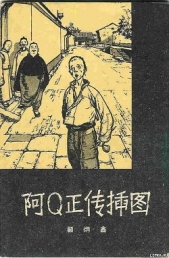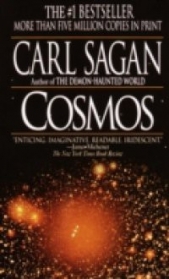Heretics of Dune

Heretics of Dune читать книгу онлайн
Frank Herbert was born in Tacoma, Washington, and educated at the University of Washington, Seattle. He worked a wide variety of jobs - including TV cameraman, radio commentator, oyster diver, jungle survival instructor, lay analyst, creative writing teacher, reporter and editor of several West Coast newspapers - before becoming a full-time writer.
In 1952, Herbert began publishing science fiction with "Looking for Something?" in Startling Stories. But his true emergence as a writer of major stature did not occur until 1965, with the publication of Dune. Dune Messiah, Children of Dune, God Emperor of Dune, Heretics of Dune, and Chapterhouse: Dune followed, completing the saga that the Chicago Tribune would call "one of the monuments of modern science fiction." Herbert is also the author of some twenty other books, including The Jesus Incident, The Dosadi Experiment, and Destination: Void. He died in 1986.
Внимание! Книга может содержать контент только для совершеннолетних. Для несовершеннолетних чтение данного контента СТРОГО ЗАПРЕЩЕНО! Если в книге присутствует наличие пропаганды ЛГБТ и другого, запрещенного контента - просьба написать на почту [email protected] для удаления материала
Waff let this sink in; all of them knew that new Face Dancers sat in the highest councils of Ix and Fish Speakers, the exchange undetected.
"The Guild will not move against us or oppose us because we are their only secure source of melange," Waff said.
"Then what of these Honored Matres returned from the Scattering?" Mirlat demanded.
"We will deal with them when it is required of us," Waff said. "And we will be helped by the descendants of our own people who voluntarily went out into the Scattering."
"The time does appear opportune," one of the other councillors murmured.
It was Torg the Younger who had spoken, Waff observed. Good. There was a vote secured.
"The Bene Gesserit!" Mirlat snapped.
"I think the Honored Matres will remove the witches from our path," Waff said. "Already they growl against each other like animals in the fighting pit."
"What if the author of that manifesto is identified?" Mirlat demanded. "What then?"
Several heads nodded among the councillors. Waff marked them: people to be won over.
"It is dangerous to be called Atreides in this age," he said.
"Except perhaps on Gammu," Mirlat said. "And the name Atreides has been signed to that document!"
How odd, Waff thought. The CHOAM representative at the powindah conference that had taken Waff away from the inner planets of Tleilax had emphasized that very point. But most of CHOAM's people were secret atheists who looked on all religion as suspect, and certainly the Atreides had been a potent religious force. CHOAM worries had been almost palpable.
Waff recounted this CHOAM reaction now.
"This CHOAM hireling, damn his Godless soul, is right," Mirlat insisted. "The document's insidious."
Mirlat will have to be dealt with, Waff thought. He lifted the manifesto from his lap and read the first line aloud:
"In the beginning was the word and the word was God."
"Directly from the Orange Catholic Bible," Mirlat said. Once more, heads nodded in worried agreement.
Waff showed the points of his canines in a brief smile. "Do you suggest that there are those among the powindah who suspect the existence of the Shariat and the Masheikhs?"
It felt good to speak these words openly, reminding his listeners that only here among the innermost Tleilaxu were the old words and the old language preserved without change. Did Mirlat or any of the others fear that Atreides words could subvert the Shariat?
Waff posed this question, too, and saw the worried frowns.
"Is there one among you," Waff asked, "who believes that a single powindah knows how we use the language of God?"
There! Let them think on that! Every one of them here had been wakened time after time in ghola flesh. There was a fleshly continuity in this Council that no other people had ever achieved. Mirlat himself had seen the Prophet with his own eyes. Scytale had spoken to Muad'dib! Learning how the flesh could be renewed and the memories restored, they had condensed this power into a single government whose potency was confined lest it be demanded everywhere. Only the witches had a similar storehouse of experience upon which to draw and they moved with fearful caution, terrified that they might produce another Kwisatz Haderach!
Waff said these things to his councillors, adding: "The time for action has come."
When no one spoke disagreement, Waff said: "This manifesto has a single author. Every analysis agrees. Mirlat?"
"Written by one person and that person a true Atreides, no doubt of it," Mirlat agreed.
"All at the powindah conference affirmed this," Waff said. "Even a third-stage Guild steersman agrees."
"But that one person has produced a thing that excites violent reactions among diverse peoples," Mirlat argued.
"Have we ever questioned the Atreides talent for disruption?" Waff asked. "When the powindah showed me this document I knew God had sent us a signal."
"Do the witches still deny authorship?" Torg the Younger asked.
How alertly apt he is, Waff thought.
"Every powindah religion is called into question by this manifesto," Waff said. "Every faith except ours is left hanging in limbo."
"Exactly the problem!" Mirlat pounced.
"But only we know this," Waff said. "Who else even suspects the existence of the Shariat?"
"The Guild," Mirlat said.
"They have never spoken of it and they never will. They know what our response would be."
Waff lifted the sheaf of papers from his lap and again read aloud:
"Forces that we cannot understand permeate our universe. We see the shadows of those forces when they are projected upon a screen available to our senses, but understand them we do not."
"The Atreides who wrote that knows of the Shariat," Mirlat muttered.
Waff continued reading as though there had been no interruption:
"Understanding requires words. Some things cannot be reduced to words. There are things that can only be experienced wordlessly."
As though he handled a holy relic, Waff returned the document to his lap. Softly, so that his listeners were required to bend toward him and some cupped a hand behind an ear, Waff said: "This says our universe is magical. It says all arbitrary forms are transient and subject to magical changes. Science has led us to this interpretation as though it placed us on a track from which we cannot deviate."
He allowed these words to fester for a moment, then: "No Rakian priest of the Divided God nor any other powindah charlatan can accept that. Only we know it because our God is a magical God whose language we speak."
"We will be accused of the authorship," Mirlat said. The moment he had spoken, Mirlat shook his head sharply from side to side. "No! I see it. I see what you mean."
Waff held his silence. He could see that all of them were reflecting on their Sufi origins, recalling the Great Belief and the Zensunni ecumenism that had spawned the Bene Tleilax. The people of this kehl knew the God-given facts of their origins but generations of secrecy assured that no powindah shared their knowledge.
Words flowed silently through Waff's mind: "Assumptions based on understanding contain belief in an absolute ground out of which all things spring like plants growing from seeds."
Knowing that his councillors also recalled this catechism of the Great Belief, Waff reminded them of the Zensunni admonition.
"Behind such assumptions lies a faith in words that the powindah do not question. Only the Shariat question and we do so silently."
His councillors nodded in unison.
Waff inclined his head slightly and continued: "The act of saying that things exist that cannot be described in words shakes a universe where words are the supreme belief."
"Powindah poison!" his councillors shouted.
He had them all now and Waff hammered home his victory by demanding: "What is the Sufi-Zensunni Credo?"
They could not speak it but all reflected on it: To achieve s'tori no understanding is needed. S'tori exists without words, without even a name.
In a moment, all of them looked up and exchanged knowing glances. Mirlat took it upon himself to recite the Tleilaxu pledge:
"I can say God, but that is not my God. That is only a noise and no more potent than any other noise."
"I now see," Waff said, "that you all sense the power that has fallen into our hands through this document. Millions upon millions of copies already are being circulated among the powindah."
"Who does this?" Mirlat asked.
"Who cares?" Waff countered. "Let the powindah chase after them, seeking their origin, trying to suppress them, preaching against them. With each such action, the powindah inject more power into these words."
"Should we not preach against these words, too?" Mirlat asked.
"Only if the occasion demands it," Waff said. "See you!" He slapped the papers against his knees. "The powindah have constricted their awareness to its tightest purpose and that is their weakness. We must insure that this manifesto gains as wide a circulation as possible."






















